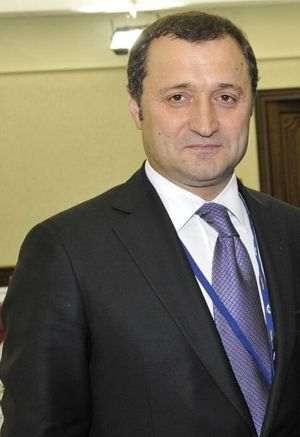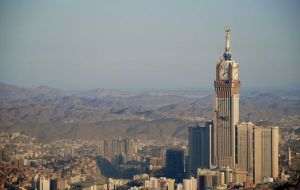Reporter: What is the goal of your visit in Romania?
Zvi Oren: I am the representative of the manufacturing industry, and in a broader sense, of the Israeli business community. We are an exporting country, and considering how close Romania is to Israel, we think that we can develop many business projects here. But lately, due to numerous mistakes, several Israeli businesspeople have failed on the Romanian market and I want to find out why so we can devise a plan of action.
A businessman needs for things to be very clear and that is why we want to establish what kind of business we want to do here and how to act.
Reporter: Will you meet with the Romanian authorities?
Zvi Oren: Not this time. I will have meetings with the president of the Confederation of Professional Associations in the Industry, Agriculture, Construction and Services in Romania (CONPIROM), Mr. Vasile Turcu, and with the president of the Romanian National Chamber of Commerce, Mr. Mihail Vlasov. I am going to talk to them, I will try to find out what kind of businesses they are interested in doing with us.
First of all, I am interested in talking to the businesspeople in your country. We will then plan for meetings with the government authorities as well.
Reporter: What are the most important investments which you want to do in Romania?
Zvi Oren: I think that there are many infrastructure projects which you need to do urgently. We have gone through this process as well over the last few years. Transportation costs a lot of money and my idea is that businesspeople don't come to a country due to low taxes, but first of all due to the good infrastructure and well thought out human resources. We intend to present you our infrastructure companies.
I want to find out what the obstacles for doing business in this sector are, because I understand that you have a lot of European money which you are unable to spend.
During my visit, I went by car on a trip from Iaşi to Paşcani and it was awful - traveling 60 km in two hours is a major problem.
Romania has a very good opportunity for improving infrastructure, and we have very good companies for cooperating with Romanian companies in that area.
Reporter: The governments want to achieve more road infrastructure projects in a concession system.
Zvi Oren: This sounds like a very good idea. But one thing that businesspeople are good at is doing calculations.
If you tell me that no more than one truck a day will travel on a road built between two points in a concession system, no one will build it. You have to create the need, and then tell the constructor to give him the concession.
Right now, if the authorities will propose a concession for the road between Iaşi and Paşcani, I will refuse, because at the current moment there is no need for the road in question. But if an industrial park gets built near Paşcani, for example, then the answer will be "yes".
Reporter: Another area of interest for investors is Romanian agriculture. Are you interested in this sector as well?
Zvi Oren: Yes, agriculture is very interesting, and we have a lot to offer when it comes to the technology used.
We will teach you how to get productivity with small plots of land. A few decades ago, 90% of Israel's revenues came from agriculture. Today, we get the same productivity with just 10% of the surface we were using back then. And that is why we have problems with the Israeli agricultural sector, because we don't need that many people and that much land anymore.
People in Israel like Romania and they want to do business here. But many people lost money on the Romanian market, so we need to make sure that this kind of experience will not happen again.
Reporter: What is the cause for these losses?
Zvi Oren: Things aren't stable enough. Before the crisis, everything was cheap.
To do business, you need to borrow money and it has come to the situation where the loans were bigger than the value of the assets, which means a major problem for banks. Businesspeople who take on big risks need stability, they need safety.
You can't just change the legislation from one year to the next. A businessperson is looking for stability so they can have a long term plan. This kind of problems can affect not just the business environment, but the entire country.
This is precisely the reason I came to Romania for one day - to make the effort of understanding exactly what happened, why and what needs to be done to improve the situation.
Together with our embassy here, we will devise a plan which we will present to the businesspeople in Israel. I personally have business in the rolling stock sector, including in Romania, and I think that very good business can be done here. I have two companies in that line of business.
I think that for anyone looking to enter Europe, Romania is the best place to do so.
It is true that the Romanian market has a number of issues, but my grandfather used to say that any problem means an opportunity. And in Romania you have problems, so there is an opportunity for businesspeople.
Reporter: Are the Israeli businesspeople interested in the privatization of the companies for which the authorities will launch public offers this year? Such as for instance CFR Marfă (the freight division of the Romanian Railway company) or the Romanian Postal Office.
Zvi Oren: I didn't know about these offers, but it is a good thing that I met you and that you told me about them.
I will ask the Embassy of Israel to send me a list of everything that will be privatized and we will find a solution to inform the Israeli businesspeople about this. If there is a common interest, we will review the options. Our organization in Israel is very powerful.
Reporter: After this crisis, do you think that selling the assets of the state is beneficial for the economy?
Zvi Oren: That is a very good question. We need to draw the conclusions from this crisis.
Somebody can come and say - "look, when the market is left to its own devices, a lot of mistakes can happen and problems appear".
Another can say that the trend of the world is wrong.
People found the solution- inventing technology, internet products, and selling them. This quick exit has turned some people into billionaires in one week. This is the easy path.
When talking about real estate, some people have bought for one dollars and sold for two and got rich. The barrier for entry was low, anybody could just up and say "I am a real estate investor".
In all of these examples, nobody thought of risk. In the end, somebody needs work, to weld, to install windows, to do carpentry.
This was the biggest mistake of the world, of the youth, of the people.
It is a sermon I serve to people in Israel as well, which is heading in a wrong direction. If you want investment banking that isn't a profession. You can't make more money than the owner of a factory.
You can't just buy or sell their business virtually, without even knowing where its headquarters is. You need to lend money to people who are working.
From my point of view, the problem wasn't whether the market was free or not, but that us, as a society, we have given value to something that wasn't worth it.
Let me give you an example. Do you know what Germany, Austria, Switzerland, Finland, countries where the economic crisis did not manifest itself so badly as in other European states?
They have an excellent professional education and they have honored work.
Because they have understood that people with skilled hands are no less important than those working in front of a computer.
In my opinion, this is the problem, and not the fact that something was privatized or not. We need to give the governments the tools to take control when things go badly.
The free market is very important in order to have a high standard of living. Because otherwise there is no ambition, people won't invent, they won't take risks. It is not good for the evolution of life.
But the governments should learn from their mistakes and to create a set of instruments to allow them to intervene when there are problems.
Reporter: How do you see the future of the global economy?
Zvi Oren: We shoud create a better environment for entrepreneurs, because a government can't force an entrepreneur to start a business.
Ambition is one of the most important things to grow the standard of living.
Governments should not be present on the market in any way, they should just regulate and guarantee the right of ownership.
Reporter: Do we need more regulation?
Zvi Oren: No, I think there needs to be as few regulations as possible. Bureaucracy is one of the greatest enemies of our life. The regulations should be just like in football - there are rules about behavior in the field, but no one gets involved in what the players are doing.
Moreover, the authorities should ensure that the weaker people in society get a better life and a job.
In Israel we have a problem because we also subsidize those who can work as well.
I don't believe in words such as communism or capitalism.
What is the most important thing that people want from their governments? The possibility to have a job.
Their job is their dignity.
Reporter: What can you tell us about the organization of Israeli manufacturers?
Zvi Oren: Every sector of the economy in Israel has a president. We have 16 presidents, which are elected, and there is also the president of the association of producers, that's me, who is the most important.
We all belong to a Chamber, which brings together all the economic organizations in Israel. I am also the president of this Chamber, so I basically represent the entire Israeli business community.
I have found that it is very important for just one voice to exist for talking with the government representing professional associations.
There need to be coordinated voices, those of the employees, of employers and of the government. And these three voices need to communicate with one another and to make decisions together. This is far more important than capitalism or communism.
It is important for all the interests to be "on the table" when a decision is made.



















































